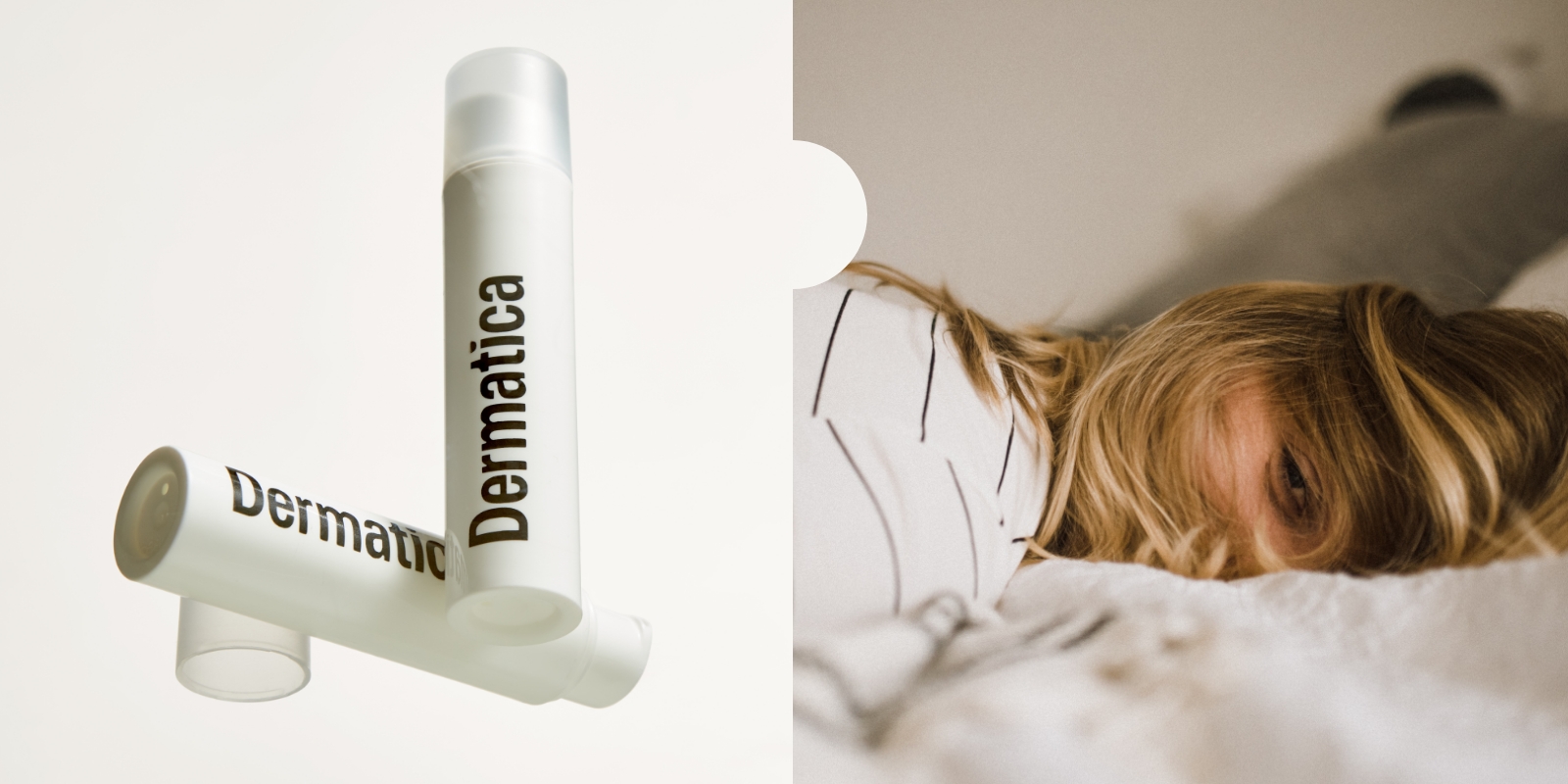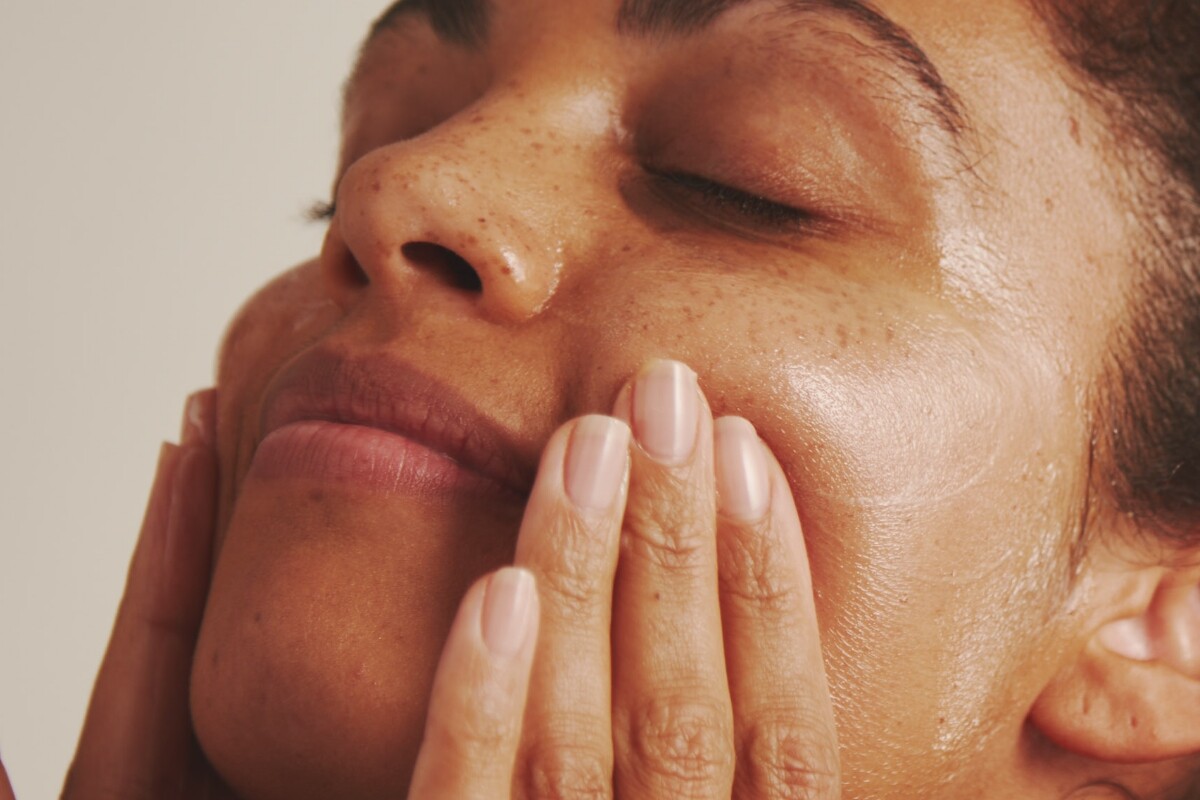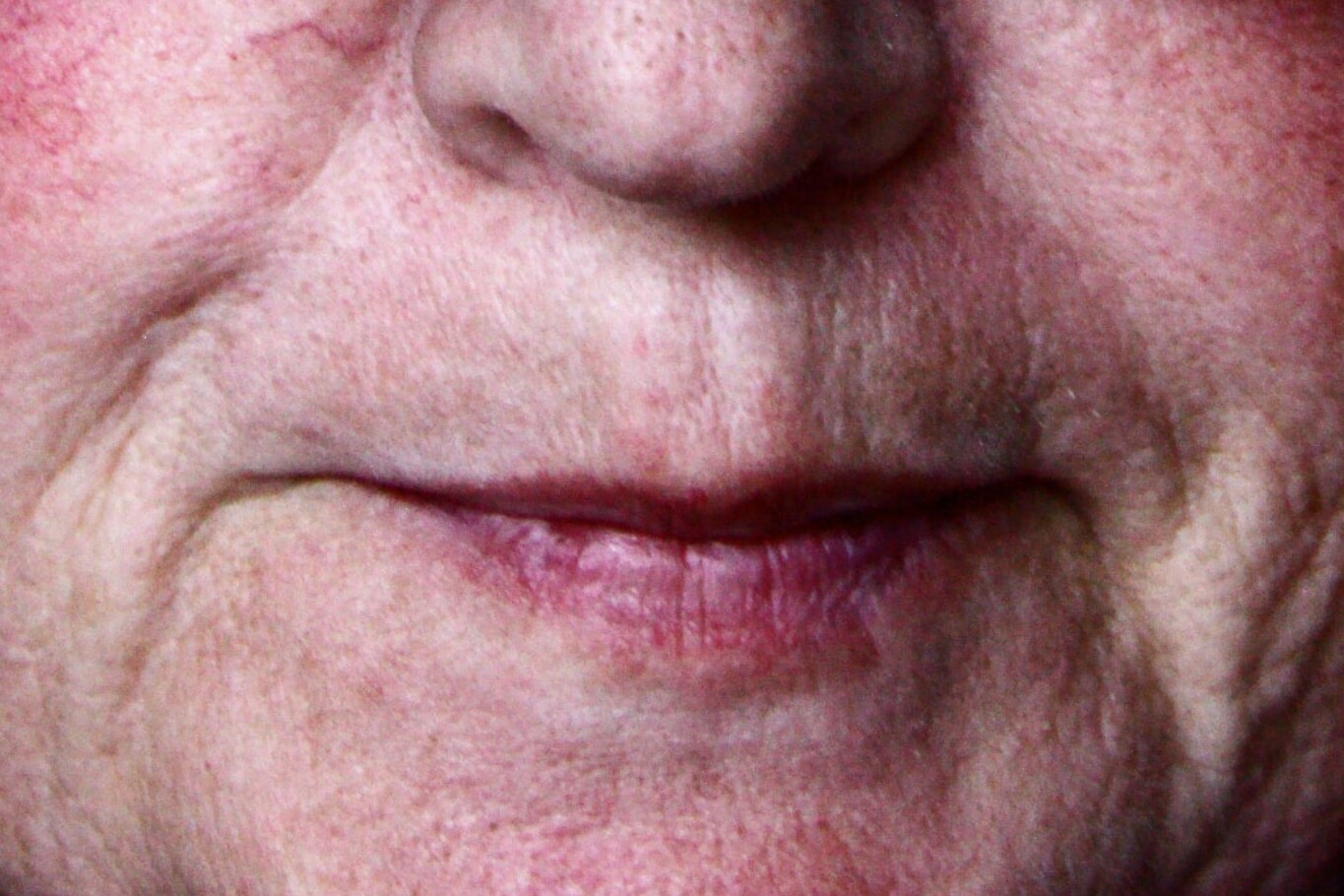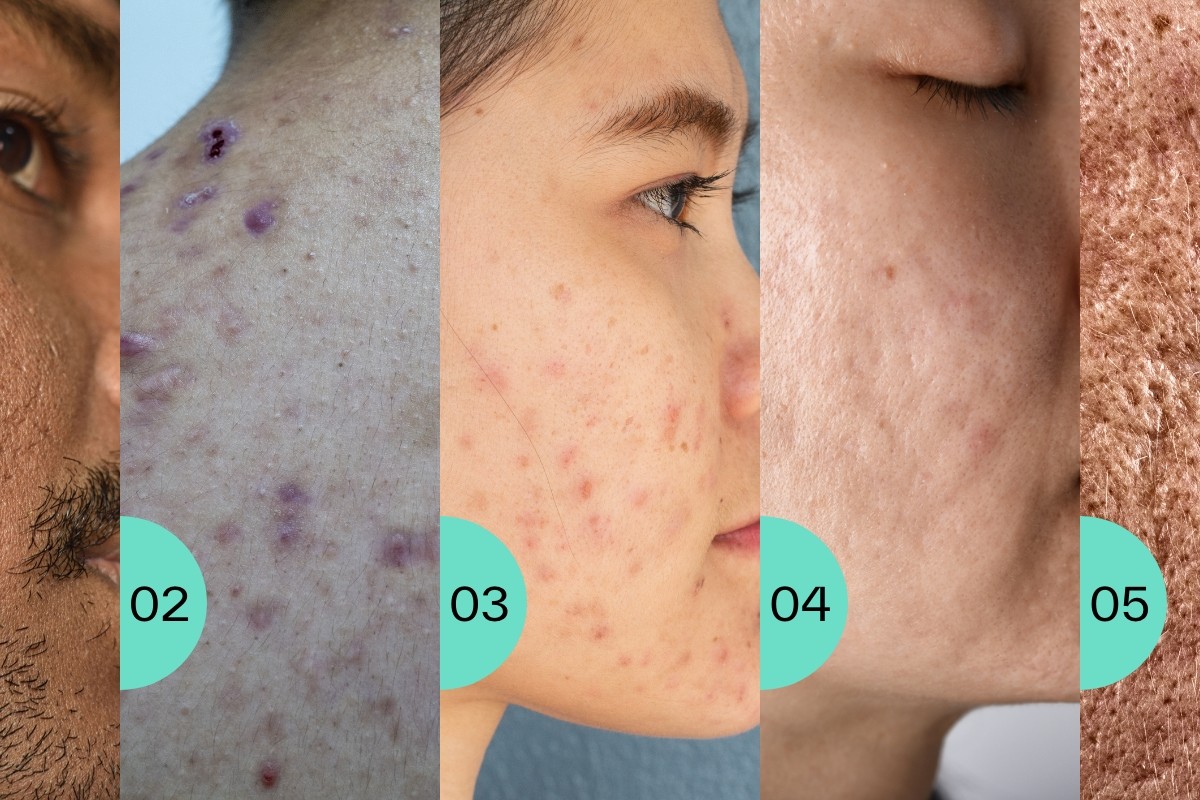As if the emotional side of stress wasn’t enough — being under too much pressure could be speeding up your skin ageing too.
But don’t worry, there are steps you can take to fight the physical impacts of stress. Here’s what you need to know, and what you can do to slow the process.
Stress ages your skin
Long hours at work, or a constant sense of pressure in your life, can impact your body on the outside as well as the inside. Stress is one of the many factors that have been shown to contribute to extrinsic skin ageing.1 That is, premature ageing brought about by external elements like UV sunlight, pollution, and tobacco.
The other type of ageing — intrinsic — happens simply due to the passage of time. It’s harder to influence intrinsic ageing, which is largely down to genetics —2 but you can impact extrinsic factors.
How does stress age skin?
It may sound strange that your state of mind could directly impact ageing. But there are clear biological pathways to explain the effects of emotional tension on your skin.
Psychological stress increases levels of cortisol, which can trigger oxidative stress in the cells of your body.3 When this happens, the natural balance of free radicals (harmful chemicals) and antioxidants (protective chemicals) is thrown out of kilter. Excess free radicals build up, and these damage cells.
In fact, free radicals are linked to all kinds of serious health problems, from cancer to heart disease.4 When skin cells become damaged, ageing accelerates.
What damage does stress do to skin?
High levels of stress can speed up all the visible signs of ageing. This includes the formation of wrinkles, pigmentation, uneven texture, sagging and dryness.3 It’s also linked with flare-ups of skin conditions such as psoriasis, eczema and acne.5,6
Another reason, if you needed one, to aim for a sense of calm and order in your life.
Does stress affect the skin barrier?
Wondering about your dry skin? Well, stress is also linked with barrier dysfunction.7 This in turn can increase loss of water from the skin, a process called trans epidermal water loss (TEWL). Water loss leads to dry, dull skin — not the healthy glow you’re after.
In one study in 46 women, just one stressful event — a challenging interview — produced noticeable decreases in skin barrier function.7 Similar changes happened after a single sleep-deprived night.7
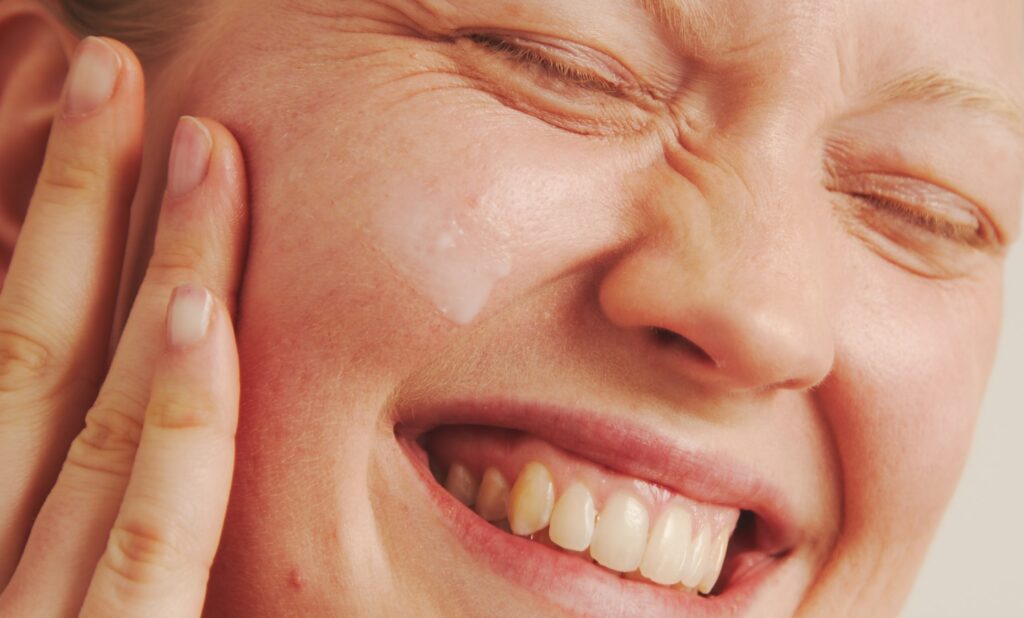
What can you do?
Thankfully, you can counterbalance the impacts of stress on your skin to help you maintain younger looking skin. Here’s how:
Start topical actives — Tretinoin, a form of vitamin A, is proven to reverse the signs of age, including accelerated ageing due to stress. It’s a great all-rounder, and can bring about changes in the structure of your skin, boosting how it looks and feels. Its proven benefits include a significant improvement in fine lines, pigmentation, texture and elasticity.8
Protect your skin barrier — A strong, supple skin barrier sets you up well to face the stresses of everyday life. This means it’s super important to keep your skin well hydrated with a good quality moisturiser. Look for one containing proven ingredients such as niacinamide, panthenol, glycerin and ceramides. Apply it at least twice a day, in the morning on cleansed skin and again in the evening after your active ingredients, or before as well if you’re struggling with side effects.
Don’t forget daily sunscreen — UV radiation is a well-known and powerful skin ageing factor. But thankfully it’s really easy to remove UV photodamage from your list of risks. Just wear plenty of high SPF (30+, with UVA and UVB protection) sunscreen every day, even when it’s cloudy. This is especially important if you’re using actives in your skin routine.
Reduce stress to look younger — This may be easier said than done. But if you can drop your day-to-day stress levels, your skin will reap the benefits. There are many ways to do this, from practical solutions to address the sources of your stress, to coping mechanisms that help when unavoidable pressures mount. Mindfulness, of course, is a tried and tested option, and is something that almost anyone can find time to practise, even if only for 5 minutes a day. Regular physical activity, deep breathing and yoga can all help too.
Sleep enough — Sleep deprivation is a source of physical and emotional stress. Sometimes, interrupted nights are unavoidable (hello, new parents). But we should all be aiming for 7-9 hours of sleep a night, if we can. There may be steps you can take to get closer to this, like cutting out all caffeine for a full 8 hours before bedtime.9 Or taking some daily exercise, but stopping at least 2 hours before lights out. Reducing stress during the day will improve sleep quality as well.
So, while it may be a shock to hear that stress really can make you look older — it’s comforting to know there are effective ways to slow the process.
Our experts at Dermatica will help you to find an anti-ageing skin regimen to regain supple, healthy and youthful skin. And taking other steps to handle the pressures of life should help to keep you looking and feeling younger.
References
Lee CM, Watson RE, Kleyn CE. The impact of perceived stress on skin ageing. Journal of the European Academy of Dermatology and Venereology. 2020 Jan;34(1):54-8.
Farage MA, Miller KW, Elsner P, Maibach HI. Intrinsic and extrinsic factors in skin ageing: a review. International Journal of Cosmetic Science. 2008 Apr;30(2):87-95.
Chen J, Liu Y, Zhao Z, Qiu J. Oxidative stress in the skin: Impact and related protection. International Journal of Cosmetic Science. 2021 Oct;43(5):495-509.
Gey KF. Prospects for the prevention of free radical disease, regarding cancer and cardiovascular disease. British Medical Bulletin. 1993 Jan 1;49(3):679-99.
Chuh A, Wang W, Zawar V. The skin and the mind. Australian family physician. 2006 Sep 1;35(9):723.
Jović A, Marinović B, Kostović K, Čeović R, Basta-Juzbašić A, Bukvić Mokos Z. The impact of psychological stress on acne. Acta dermatovenerologica Croatica. 2017 Jul 20;25(2):133-.
Altemus M, Rao B, Dhabhar FS, Ding W, Granstein RD. Stress-induced changes in skin barrier function in healthy women. Journal of Investigative Dermatology. 2001 Aug 1;117(2):309-17.
Mukherjee S, Date A, Patravale V, Korting HC, Roeder A, Weindl G. Retinoids in the treatment of skin aging: an overview of clinical efficacy and safety. Clinical Interventions in Aging. 2006 Jan 1;1(4):327-48.
The Sleep Charity. Sleep Hygiene. https://thesleepcharity.org.uk/information-support/adults/sleep-hygiene/, accessed 16 February 2023.
Jane McQueen
Jane McQueen is a medical copywriter with over 15 years of experience in health content. She’s worked across all healthcare sectors, creating evidence-based content on topics from skincare to mental health. She has a life sciences background, with a degree in physiology and a PgDip in public health.
Cat Hyatt
Dr Cat Hyatt is a GP, working as Clinical Content Lead for Dermatica. She has a special interest in medical content and making healthcare information accessible and understandable for all.

